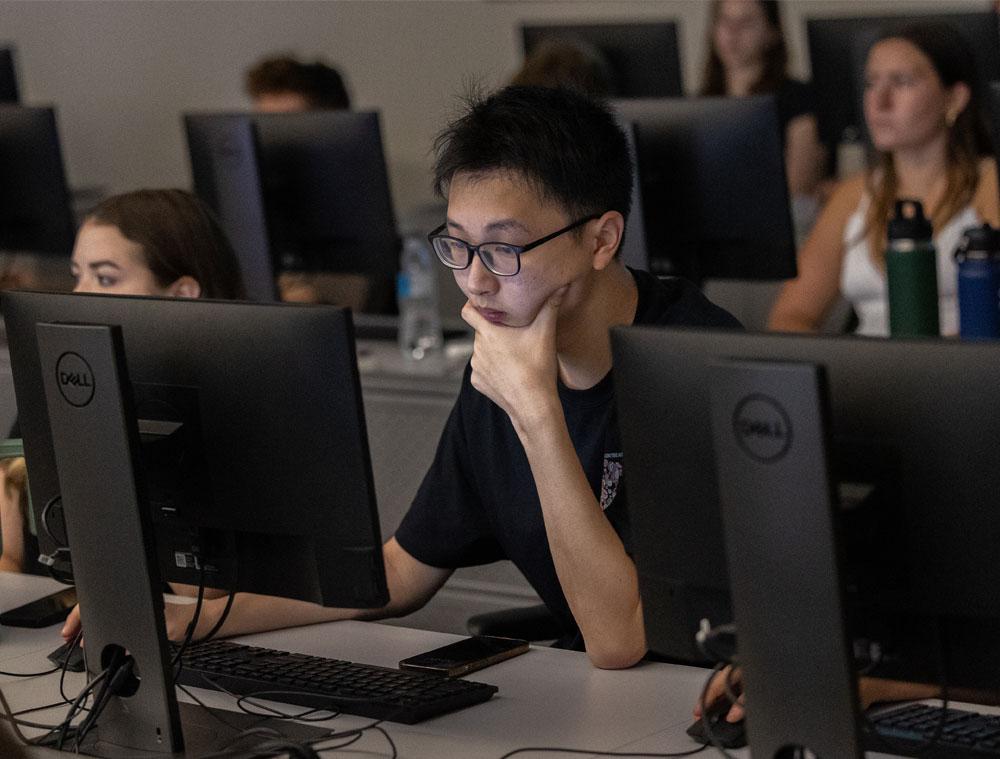Tulane embraces AI through classes, workshops and more
Tulane is well on its way to being at the forefront of all things AI, offering a dynamic array of classes, workshops and programs that span disciplines and foster interdisciplinary collaboration through the use of artificial intelligence.
From business and health care to the arts and social sciences, Tulane’s AI classes provide students with a comprehensive understanding of how AI can revolutionize diverse fields.
Through the Department of Computer Science in the School of Science and Engineering students can choose from a broad range of electives, including machine learning, deep learning, computer vision, reinforcement learning and natural language processing, in addition to foundational courses in AI and data science.
Nicholas Mattei, associate professor of computer science, is teaching a class this fall with Walter Isaacson, the Leonard Lauder Professor of American History and Values at Tulane, who is also the bestselling biographer of Steve Jobs and Elon Musk, as well as author of “The Innovators: How a Group of Hackers, Geniuses, and Geeks Created the Digital Revolution.”
The computer science department is also home to Tulane’s Jurist Center for Artificial Intelligence, whose efforts include a research project to develop AI systems that can mimic human behavior, with a long-term goal of using AI to help humans make better moral judgments.
The department’s interdisciplinary Center for Community-Engaged Artificial Intelligence (CEAI), offers undergraduate and graduate students the opportunity to participate in projects that focus on creating and deploying AI systems that are inclusive, effective, fair, transparent and accountable. The center is also partnering with the Connolly Alexander Institute for Data Science (CAIDS) to co-sponsor seminars and lectures for faculty and staff on how implementing AI in the recruitment process affects the diversity of applicant pools as well as AI’s impact on hiring outcomes, judicial fairness and public safety.
In addition, CAIDS offers several courses that focus on the principles of data science, methodologies of data analysis and visualization, and the practical applications of AI.
“It is essential for students to not only understand the capabilities and limitations of AI technologies, but they must also develop the skills and competencies that promote the effective and responsible use of AI applications,” said Lisa Dilks, a professor of practice in data and CAIDS associate director of curriculum and assessment.
Other AI-related offerings include AI-related classes through the Tulane School of Professional Advancement; Teaching with AI, a faculty workshop offered by the Center for Engaged Learning and Teaching (CELT) in collaboration with CAIDS and Innovation Learning Center (ILC); the ILC’s Workshops for AI Visionaries and Educators; and Tulane Tech Day, an annual event presented by Tulane Information Technology. Follow all the progress in AI integration at Tulane at ai.tulane.edu.

